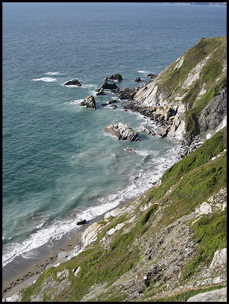 By PAT HARTMAN
By PAT HARTMAN
News Editor
Today we take as our text one of the recent contributions of Kevin Dolgin to the annals of travel writing. This narrative is found at McSweeney’s Internet Tendency, and its title, “The Best Pint of Guinness in Dublin,” is self-explanatory. It’s all about visiting with members of one of the most loquacious of all ethnic groups, the Irish, in their native haunts. This was done on the advice of a cab driver, whose considered opinion was that the most Irish characteristic is communication — particularly the kind carried on over a measure of excellent brew. Actually, the more measures, the better. But first, Dublin must be navigated — and here’s how Kevin describes the venerable city:
It’s made of bricks: the buildings, the sidewalks, everything is made of brick. I find brick cities to be cold, industrial. You expect to see Charlie Chaplin skittering around the corner with a bevy of incompetent cops running after him.
Confiding in the barman that they are in search of the best pint of Guinness in Dublin, Kevin and his friend are promised they’ve come to the right place, because of an elusive factor called the “sharp draw.” Indeed, it is an article of faith among the Irish that their Guinness will have a different taste, depending on the architecture, fittings, and ambiance of each particular pub. Various other bars are recommended, and as the two seekers journey on, helpful bystanders recommend yet more not-to-be-missed watering holes, including one housed in a former morgue. As the Irish communication skills blossom, the writerly note-taking diminishes, and the details of the last few stops are a bit blurry, except for a sudden return of awareness re: an interesting vending machine in the gents’.
Now, we must not get the idea that Ireland is all kegs and drafts. Remember the communication aspect? For that, you’ve also got your literary festivals, a roaring great crowd of them. Poetry Ireland, for example, offers a complete roundup of all Irish poetry festivals throughout the year. July saw the 11th West Cork Literary Festival in Bantry, only one of many such cultural gatherings. The granddaddy of them all, at 18 years, is the Aspects Irish Literature Festival that occurs in Northern Ireland, not far from Belfast, whose mission is “firstly to promote exclusively Irish writing in all its forms.” Declan Burke outlines the past and future prospects of the crime novel as an element of the Irish lit fest in “Plots of crime masterminds” at the Irish Independent. As the host of “Crime Always Pays”, a blog dedicated to Irish crime writing, Burke has the whole scene covered.
Upcoming is the 6th Dromineer Literary Festival, to be held from October 1st to 4th in County Tipperary. It’s probably a bit late to arrange for attendance at “Let Me Take You To The Island,” namely Rathlin Island, a lovely spot in the Irish Sea near Ballycastle, or to make it to Dublin’s IMRAM Irish Language Literature festival, which is in progress even as we speak — but keep them in mind for next year. This IMRAM bash is beyond eclectic, with such offerings as “the Russian poets of the Silver Age translated into Irish and English,” and the Dylan Project (Dylan Thomas, not Bob Dylan). The imram, by the way, is a rowing voyage, sort of a pilgrimage or walkabout, only by sea. In the tradition of the Celts, it’s also an inner voyage to the realms of vision and dreams. In fact, imram designates a whole genre of Irish literature.
That festival is not to be confused with the Immrama Literary Festival, which in June drew 4,000 travelers to Lismore, County Waterford. “Rory Maclean literally blazed the Hippie Trial taking his audience from Istanbul to Kathmandu and on to Burma and Russia, his presentation ‘Creating a Traveller’s Tale’,” reads part of the gathering’s description, and in fact the focus of this particular festival is on travel writing.
But for those who avoid both communication and festival multitudes, here’s a bit of Ireland whose praises are sung by John G. O’Dwyer: An Daingean, or Dingle, a windswept part of the western coast with no golf courses or luxury hotels. (The photo on this page is Slea Head.) According to O’Dwyer, “It is often said that the Irish countryside is a giant storybook seeking readers.” He says it, and a lot more besides, in The Irish Times.
photo courtesy of Frankensteinnn, used under this Creative Commons license

